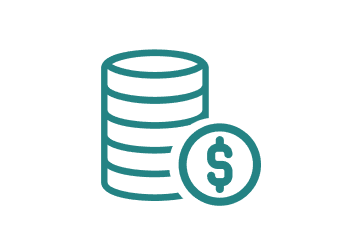As the head of a business, you have a lot on your plate. That’s why you brought on a CPA to manage your business’s money.
Hopefully, your CPA has saved you time and money, as well as providing a wealth of financial information. If you’ve faced any financial changes, up to and including an audit, your accountant likely stood with you, ensuring that your business could move forward stronger than before.
If you’re wondering why you haven’t seen these benefits, your accountant may not be a good fit for you. This can be hard to accept. Most businesses stay with their CPA for 12 years or more, and your CPA may feel more like a friend than an employee. Considering that, it’s normal to feel apprehensive about switching CPAs or hiring new CPA tax services. You’ve grown accustomed to the way they do business, and changing CPAs will mean starting from scratch.
However, waiting too long to switch can lead to a string of uncomfortable and possibly costly years. Just as you found and established a relationship with your current CPA, you can do the same for a new CPA who will help your business flourish. If there is any doubt about your current accountant, reevaluate the relationship and make sure your CPA meets all your needs.
Here are a few red flags you should watch out for.
You’ve Outgrown Them (Or They’ve Outgrown You)
Your CPA or accounting firm can grow with you, but if your growth is rapid, you may be outpacing them. If you’re the largest business your CPA handles, then they may not have the exact expertise you need to succeed. On the other hand, if you’re one of the smaller businesses your CPA handles, then you may be lower on their list of priorities.
There is a middle ground, however. Many CPAs specialize in certain sized businesses, so you can find the right match with a bit of searching. The time — and the interviews and the trial runs — will be worth it to find a CPA with the right knowledge and who treats your business like their favorite client.
You’re Not Communicating
Whether you’ve always had an open line of contact or you’ve struggled to get in touch with your CPA, communication is essential. Seventeen percent of surveyed small business owners said that responsiveness was a deciding factor in choosing an accountant. If your CPA doesn’t answer your calls in a reasonable amount of time or keeps important information from you, they’re probably a bad fit. When financial and tax questions come up, you want answers as soon as possible, and your CPA should be eager to provide you with those answers.
They Don’t Know Your Industry
When you were just starting out, it may have made sense to bring in a generalist CPA to get your books up and running. Your accountant might have picked up the information they need while working with you, but if they still need to be reminded of what you do each time you speak with them, they aren’t the best for your business.
Even if you’ve been working with a great generalist for a while, it won’t hurt to consider a CPA who knows your industry inside and out. Many industries, such as construction, have very specific deductions or credits that a generalist may not know to look for.
Their Billing Doesn’t Work for You
You have to pay your CPA, whether hourly or salaried, but you shouldn’t be overcharged. If you’re surprised by your CPA’s cost, ask for an itemized bill before moving forward. It should outline how long your CPA spent on certain tasks. You can review the bill to see if your CPA is spending hours, and your money, researching topics they should already know. This is also a good way to find out if your CPA is overcharging you for asking questions. Many CPAs will charge for some advice, but it shouldn’t cost you more than preparing your return. And, speaking of returns, your CPA shouldn’t be charging you based on the size of your refund. That encourages your CPA to take deductions you may not have really earned.
To avoid trouble with your bill, consider a CPA who works remotely, which is usually cheaper than salary. One survey found that less than half of small businesses expect to talk face to face with their accountant in the future. You can switch and get ahead of that curve.
You Get Better Advice Somewhere Else
If you consistently bring your CPA advice or tips from other sources, or if they refer you to outside experts when you ask questions, they aren’t doing their job. In fact, a survey of small business owners in the UK found that 42% of small business owners ask their accountants for advice beyond accounting. You are paying your accountant to be a financial expert, and they should be the one advising you when you need it. If they can’t, it’s time to switch.
You Aren’t Happy with Your Return
One survey found that 52% of small business owners feel they pay too much in taxes, and you may feel the same. If so, your accountant should work with you to get the most deductions you can — within legal, ethical and, most importantly, accurate limits. If your CPA is too conservative or too liberal with their deductions, then you aren’t getting what you need. And if there are mistakes obvious enough that you can find them, you’re not even getting the basic expertise you’re paying for.
They’re Reactive
You should talk to your accountant more than once a year. And your accountant should be proactive, not simply reacting at tax time to what each year brings. In fact, in a 2015 survey, 44% of small business owners with 51-100 employees said being reactive, rather than proactive, was their number one complaint about their accountant.
Your accountant should review your financial history to help you consider your business’s financial future and, ideally, you should discuss this quarterly. This may be something you can arrange with your CPA, but if reactivity is a consistent problem, or it’s paired with other negative signs, consider switching.
Finding a New CPA
If you’re seeing red flags but are overwhelmed by the process of finding a new CPA, don’t worry. There are a number of resources to help you sort through your options and get started.
One place to find a new CPA is through recommendations. Polling other business owners, family or friends can drum up a number of possible experts. The same can be said for online sources like Yelp which offer recommendations from a wider circle.
If you’re interested in finding your CPA without recommendations, databases like the one maintained by the Association of International Certified Professional Accountants can help you find a CPA nearby.
If you’re looking for a freelance or outsourced accountant, Paro is the perfect resource. We take care of the work of finding an expert and match you with freelancers who work with you remotely, saving you money, time and frustration. We have CPAs in industries of all types — everything from healthcare to media to real estate — so you can be sure your new CPA knows your business’s needs. Before you bring them on board, you get to review their experience ensuring they are at your level and have the expertise you need. Best of all, you get the support of our team throughout the process. Our account managers are ready to navigate your new relationship with your CPA as your business, and needs change.
Making the Switch
Once you’ve found your new CPA, be honest and communicate to your old CPA exactly what your new CPA will need to get started. Keep in mind that many regulatory bodies require CPAs to work together. If your old CPA isn’t willing to, don’t be afraid to invoke those regulations.
However you find your new CPA, make sure they can give you the support you need for what you do and where you’re going. The adjustment period can be uncomfortable, and there may be some hiccups during it, but finding a CPA who matches your business’s size, industry and budget is more than worth it.
Don’t be afraid to switch things up. Your business will thank you.












